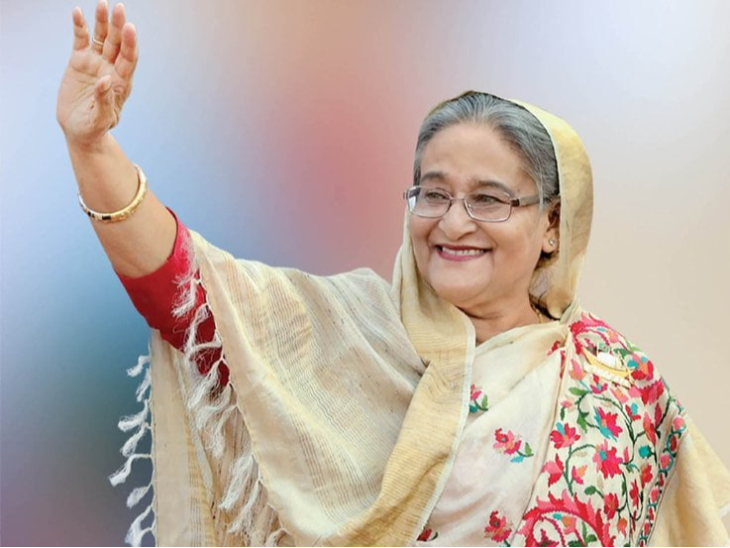Dhaka4 minutes ago
- copy link

Bangladesh has sent a diplomatic note to India for the extradition of Sheikh Hasina. According to the report of The Daily Star, Bangladesh’s Foreign Advisor Tauheed Hussain has confirmed this.
Hussain said-

We have sent a diplomatic letter to the Government of India. It said the Bangladesh government wants Sheikh Hasina back to face the law.
Earlier, Home Affairs Advisor Jahangir Alam Chaudhary had said that the process of extradition of former Prime Minister Sheikh Hasina is going on. In fact, after the coup on August 5, Sheikh Hasina had fled and taken refuge in India. He has been here ever since.
The Yunus government formed after the coup in Bangladesh has registered more than 225 cases against Hasina ranging from murder, kidnapping to treason. At the same time, the Bangladeshi government has warned that the statements made by Hasina while in India are spoiling the relations between the two countries.

Jahangir Alam Choudhary is the Advisor on Home Affairs in the Interim Government of Bangladesh.
When asked about Sheikh Hasina’s return from India, Jahangir said that there is an agreement between India and Bangladesh regarding exchange of criminals. This will be done under the same agreement.
An interim government was formed in Bangladesh after Sheikh Hasina left the country in August 2024. The first case was registered against Sheikh Hasina just 8 days after she left the country and till now more than 225 cases have been registered against her. Many of these are related to serious crimes.
On the basis of these, many Bangladeshi leaders are demanding that India hand over Sheikh Hasina to the Bangladesh government.

Sheikh Hasina had reached Hindon Airbase in Ghaziabad from Dhaka along with her sister on the evening of 5 August.
Accused India of forced disappearance of people
Meanwhile, an inquiry commission in Bangladesh has alleged India’s involvement in the ‘forced disappearance’ of people from the country. This inquiry commission was constituted by the Yunus government on 27 August. The Commission has also talked about the role of Rapid Action Battalion (RAB) in this. Therefore, the inquiry commission has also recommended the abolition of RAB.
The investigation commission of the Yunus government has estimated in the report that more than 3500 people are missing. The report also said that Bangladeshi prisoners may still be lodged in jails in India.
Apart from this, the Commission has also mentioned the intelligence report of exchange of prisoners between India and Bangladesh. The commission of inquiry has cited two cases to show enforced disappearances. The first case is of Sukhranjan Bali.
Sukhranjan Bali’s brother was assassinated in 1971 during the Bangladesh Liberation War. Hussain Sayeedi, a Jamaat leader, was accused of murdering him. Sukhranjan was kidnapped from the Supreme Court in November 2012 while giving a testimony in the same case.
A few months later, it came to light that he was kept in Dumdum jail of Kolkata. Media reports claimed that Bali was kidnapped from the court by people in plain clothes and then sent to India. He was sent to jail for entering India illegally.
Later, Bali had demanded from the Indian government that he should be given asylum in India because he could be killed in Bangladesh. The second case is of BNP leader Salahuddin Ahmed.
Salahuddin was an aide of former Bangladesh Prime Minister Khaleda Zia. He left the country in March 2015. After 2 months he was seen in Shillong, India. After this he was arrested for entering the country illegally.
The Investigation Commission alleges that Bangladesh’s Rapid Action Battalion (RAB) has carried out these incidents with the connivance of India. These people were deliberately taken to the Indian border and handed over to the Indian authorities.
The commission of inquiry said that 1,676 complaints of enforced disappearances have been filed so far. Of these, 758 cases have been investigated. The commission said the number of enforced disappearances in Bangladesh could exceed 3,500.

